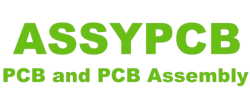PCB Routers, Milling Machines
1. What are PCB Routers, Milling Machines?
PCB routers and milling machines are precision processing equipment used in the electronics manufacturing industry. They are primarily used for:
High-precision PCB prototyping
Rapid production of small batches of PCBs
Processing of complex multilayer boards
Contour cutting of special-shaped components
2. Technical Parameters and Performance Indicators
|
Key Parameters |
Industry Standard Range |
Technology Evolution Trend |
|
Positioning Accuracy |
±0.01-0.025mm |
Submicron Control System |
|
Spindle Speed |
30,000-100,000rpm |
Air Bearing Spindle Popularization |
|
Processing Thickness |
0.1-10mm |
Ultra-thin Sheet Compatibility |
|
Minimum Line Width |
0.1-0.3mm |
Laser Hybrid Processing Technology |
3. What are the Typical Application Scenarios of PCB Routers, Milling Machines?
R&D and Verification Phase
Design verification completed within 24 hours
Supports processing of special materials such as FR4 and aluminum substrates
Education and Research
Electronic Engineering Teaching Experimental Equipment
Tools for rapid iteration of scientific research projects
Military and Aerospace Applications
Meets IPC-6012 Class 3 standards
Specialty material processing capabilities
4. Key Points for Purchasing PCB Routers, Milling Machines
Users are advised to focus on:
Dynamic machining accuracy and stability
Automatic tool changing system
Dust collection efficiency
CAM software compatibility
Equipment vibration suppression technology
5. Industry Frontiers of PCB Routers, Milling Machines
Technical Breakthroughs in 2025:
5G millimeter wave PCB processing technology
Embedded component cavity processing technology
AI-driven adaptive milling algorithm
